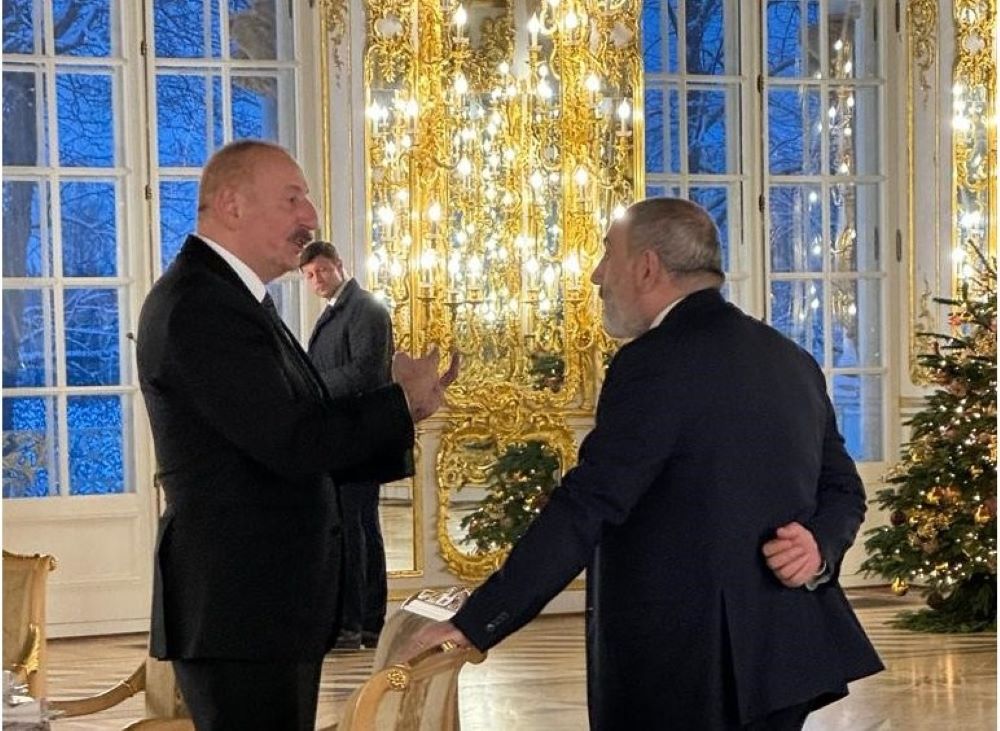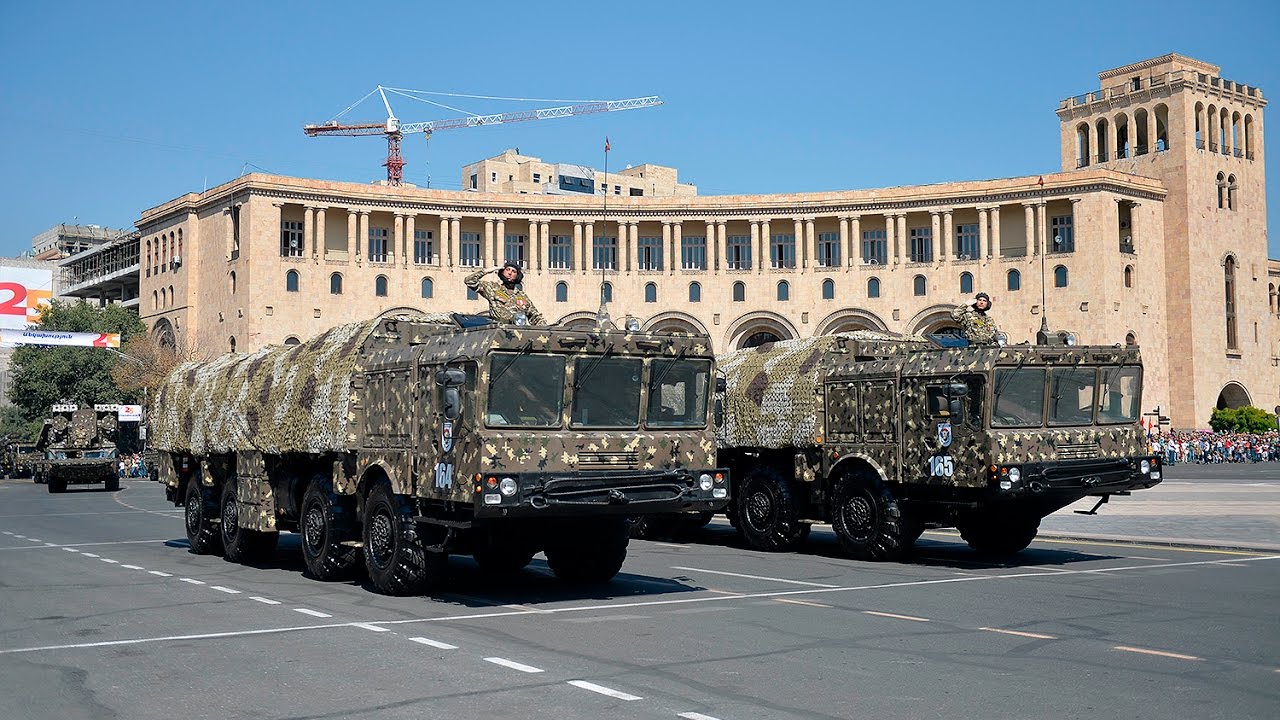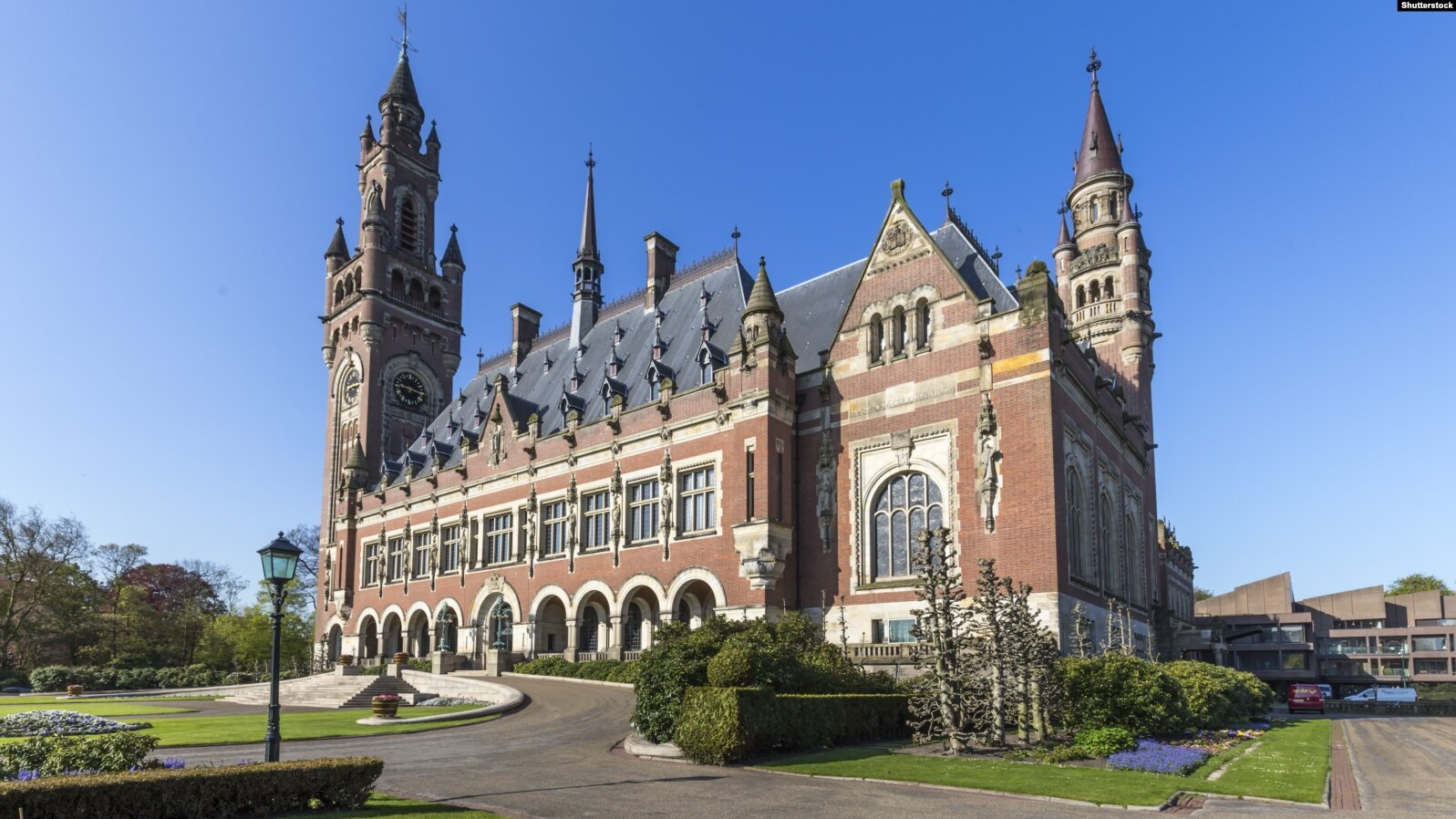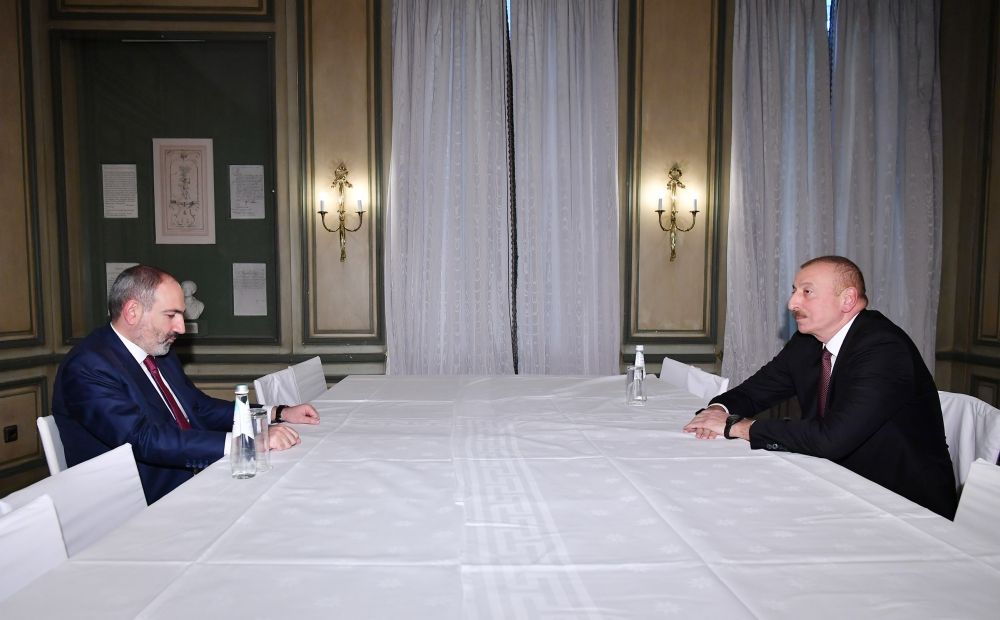'Yerevan sees risk of further escalation': views on the Pashinyan-Aliyev remote dialogue
Pashinyan-Aliyev remote dialogue
“I can guarantee that Armenia has no intention, goal, or plan to attack Azerbaijan. It will not go down this path. If Azerbaijan has no intention to attack Armenia, then the likelihood of escalation in the region is zero,” said Armenia’s Prime Minister in an interview with Armenpress. In the interview, Nikol Pashinyan responded to recent statements made by Azerbaijan’s President.
In an interview with the Russian outlet RIA Novosti, Ilham Aliyev claimed that third countries are arming Armenia, and that these threats “are quite serious.” However, he believes that Armenia cannot sustain an arms race, even though it receives support not only from Paris but also from Washington:
“We are conveying, and will continue to convey, to Armenia’s sponsors, the so-called Soros people in Washington, that this must stop. And if it continues, we want to make sure that no one has any complaints against us later.”
This statement highlighted the risks of escalation, including for the Armenian authorities, according to political analyst Akop Badalyan. This is also evident from Pashinyan’s “operational response” to Aliyev’s interview.
“Creating a military corridor through Armenia’s territory, the so-called ‘Zangezur Corridor,’ is a serious geopolitical issue. Baku cannot make such decisions on its own. But it can become a tool for its implementation. In terms of a local border military operation, Baku can make independent decisions and may take advantage of favourable international circumstances for this,” Badalyan emphasized in his commentary for JAMnews.
- Aliyev unwilling to pursue peace or strategic deal with Armenia: expert in Yerevan
- “Armenia could present a counter-demand”: analyst on “Western Azerbaijan” narrative
- “Armenia isn’t militarizing but raising cost of attacking it”: opinion
Aliyev: “Armenia will not withstand arms race with us”
In his interview, the President of Azerbaijan focused extensively on the weaponry that Armenia is purchasing.
“The weapons that Macron’s government is supplying to Armenia are offensive, lethal weapons that pose a practical threat to Azerbaijan,” he said.
According to him, Armenia’s rapid rearmament has led to Azerbaijan’s military budget for 2025 being a record amount, around five billion dollars. Aliyev also mentioned that this is a “disastrous” path:
“Firstly, Armenia will not withstand the arms race with us, despite receiving most of its weaponry from the West for free or on credit, which will, of course, later be written off. But even in this case, they will not withstand the arms race with us.”
He advised the Armenians not to forget the outcomes of the second Karabakh war and the “counter-terrorism operation” in September 2023, which resulted in all ethnic Armenians being forced to leave their homes in Nagorno-Karabakh:
“They must understand that, despite the maximum support from Macron’s regime and the U.S. State Department, here, on the ground, if they plan another provocation against us, no one will help them.”
Pashinyan: “Armenia is arming itself to protect its borders”
In response to Aliyev, Armenian Prime Minister Nikol Pashinyan stated that Armenia is not in an arms race with any country:
“We are acquiring weapons solely to protect Armenia’s borders and territorial integrity, that is, for defensive purposes. Our goals are transparent. We are being told that for defensive purposes, we should only acquire defensive weapons. But it is impossible to organize defense with only defensive means.
Let’s assume Armenia acquires state-of-the-art air defense and EW systems [electronic warfare systems]. But how should we protect ourselves from ground attacks? Of course, with artillery, of course, with missiles, and of course, with other means of destruction. Azerbaijan is also acquiring non-defensive weapons. Does this mean it is pursuing a revanchist policy?”
He emphasized that army reforms are Armenia’s legitimate right, not a threat to Azerbaijan. Pashinyan reminded that official Yerevan has unambiguously recognized Azerbaijan’s territorial integrity and sovereignty over Soviet Azerbaijan:
“And we expect that Azerbaijan, like us, will recognize the territorial integrity of the Republic of Armenia in accordance with the agreements we have reached and refrain from a policy of threats.”
The Prime Minister reminded that Azerbaijan’s military budget is three times higher than Armenia’s military expenditures.
“Against this backdrop, accusing us of arming ourselves is at least unfair. We even proposed to Azerbaijan to create a bilateral arms control mechanism. But Azerbaijan has not responded to this so far,” he stated.
Pashinyan-Aliyev ‘dialogue’ on unresolved provisions of the peace treaty
Aliyev has officially declassified that the unresolved provisions of the peace treaty, or more specifically, Baku’s demands, are:
- The exclusion of third-country representatives from the border (which implies the withdrawal of the EU observer mission monitoring from the Armenian side);
- The refusal to file lawsuits in international courts.
In response, Pashinyan reminded his position on the issue of not placing representatives of other countries on the border. He stated that this is possible in areas where delimitation has already been carried out. The Prime Minister confirmed his viewpoint:
“This is logical. Since the risk of escalation in these areas is significantly reduced due to delimitation. If not, it is reduced to a minimum. Therefore, after full delimitation of the border, there will be no need for the presence of third-party forces on any section of the Armenia-Azerbaijan border. The Republic of Armenia proposes this logic.”
As for the mutual abandonment of lawsuits in international courts, Aliyev stated that “it would be mutually acceptable.” He explained that Azerbaijan had calculated “the damage caused by years of occupation,” amounting to “more than $150 billion.”
The Armenian Prime Minister did not respond to the statement regarding financial claims but said that the idea of withdrawing lawsuits is acceptable and logical after the signing of a peace treaty:
“However, there are two nuances. One is that there should be a clear perspective for resolving individual humanitarian claims discussed in bilateral formats at international forums. Secondly, there should be clarity that after withdrawing disputes from international platforms, the parties should not raise the same issues again or exacerbate the agenda of bilateral relations, turning them into a constant source of escalation. I mean, disputes should not only be removed from international judicial instances but also from the disputes themselves.”
Political analyst Akop Badalyan
Aliyev’s statements about Armenia’s arms purchases are aimed not only at limiting possible acquisitions, but also at preparing the ground for another escalation under the guise of a preventive operation, says political analyst Akop Badalyan. He believes these words also reflect an intention to create conditions for further conflict.
Badalyan is confident that Aliyev continues his long-standing policy of a maximalist approach toward Armenia:
“This is expressed not only in territorial claims and political ambitions regarding Armenia. It reflects the following logic: to make all sorts of demands on Armenia, using any pretext.”
According to Badalyan, Baku sees an unpredictable international situation that will continue in the coming months due to discussions about Ukraine and the power transition in the United States. This encourages Azerbaijan’s authorities to take advantage of the situation:
“I think there is a real risk of escalation. Aliyev believes that situations may arise where there is a window for the use of force, and he will be able to resolve certain issues. The scale of those issues will depend on the situation.”
Badalyan suggests that Baku will escalate to improve its positions before the next stage of border delimitation:
“Azerbaijan clearly has demands on Armenia that are difficult to realize through political consent. To achieve these, it intends to use force. This concerns both enclaves and border areas, where Azerbaijan wants to secure strategic positions under the pretext of conducting delimitation.”
The analyst believes that Aliyev linking the withdrawal of lawsuits to “occupation and compensation of $150 billion” is political blackmail:
“Azerbaijan is trying to pressure Armenia on all fronts. It is taking advantage of the moment when the old world order is not functioning, and the process of forming a new one is continuing in an uncertain and unpredictable manner.”
Akop Badalyan is still unsure about what might be acceptable for Armenia in the context of withdrawing lawsuits. The expert believes all the details, possibilities, and risks need to be examined:
“The circumstances of individual lawsuits could be of concern to Yerevan, in the sense that Azerbaijan might officially withdraw from international lawsuits but still ‘work behind the scenes’ through individual claims.”
He believes these issues can and should only be discussed if a balanced process is formed and real guarantees for peace are in place.






















